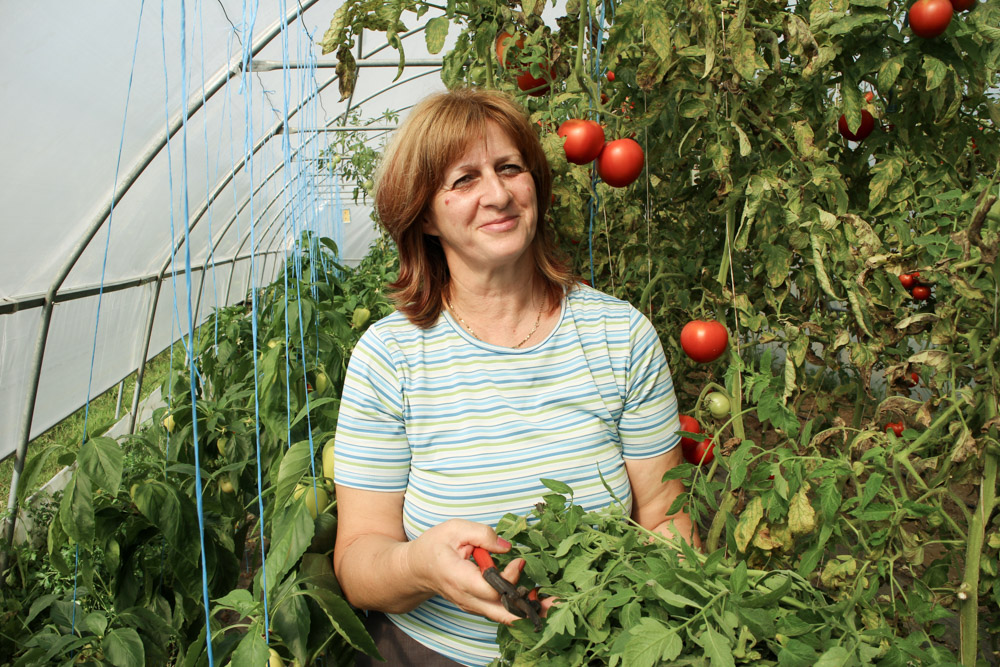
Greenhouse food production creates new jobs
One of the EU priorities in BiH is the development of agriculture and the creation of new jobs. By implementing the “Lifelong Learning Centre” project, funded by the EU and co-funded by the city o...
One of the EU priorities in BiH is the development of agriculture and the creation of new jobs.
By implementing the “Lifelong Learning Centre” project, funded by the EU and co-funded by the city of Doboj, EUROPLUS helped improve the status of the long-term unemployed in the area of Doboj, Modriča and Derventa.
Biljana Bjelanović from Doboj, unemployed economics graduate, completed a training course in greenhouse food production. She then went on to grow vegetables for the first time and in this way boosted the budget of her seven-member family.
Following floods in the Doboj area, Biljana started with agriculture in open land plots. While undergoing the training, she realized that she did not have the skill set for this type of farming.
“The training actually showed many positive examples of why to choose greenhouse production. Although I was a layman at the start, I am very happy now. I am satisfied and feel fulfilled personally, but it also improved the family budget.“
Biljana’s goal after the training was to start producing her own greenhouse vegetables, first and foremost because she cared about what her family ate, but also to generate income to sustain her large family.
“Growing food helps us and is the largest source of our income, while, at the same time, we know exactly what we eat,” said this farmer.
When it comes to sale of the products, Biljana was happy to report: “I was lucky, sold some to my friends, some to shops. Just this morning I sent 20 kg of tomatoes to my friend in Tuzla, and this is not the first time. In the end, I made it!“
Biljana stresses the significance of the appropriate training before starting in food production.
Mirko Radončić from Doboj had been registered as unemployed for 6 years. The first greenhouse he built could not cover the basic needs of his family. After sustaining material damage caused by the floods, he received a donation that enabled him to build a larger and more modern greenhouse. This encouraged him to apply for greenhouse food production training. After completing the training, he was awarded a recognised certificate and the training was recorded in his employment record book.
Although he was not new to greenhouse food production, this farmer says that the training helped him immensely in expanding existing skills and acquiring new ones.
“Although I believed I already knew a few things, I did many of them the wrong way. Then I came to these lectures and I was set right, and I learnt a lot more, too.”
After completing the training, he noted a huge improvement in production and sales of vegetables.
“While undergoing the training, I produced a huge crop of peppers and tomatoes, enough to meet my family’s needs, for winter preserves, tomato sauce, and I also managed to sell some.“
Mirko adds that he intends to be a farmer until he retires and considers expanding to raspberry cultivation.
“Many heard of it and came to the house to ask: ‘Mirko, how do you do this, and how do you do that …‘. I told them I was not a professor. There is training, you need to apply.”
A hundred and twenty-four mostly unemployed people successfully completed the training programme within this EU project. The newly acquired skills enabled them to successfully produce food in greenhouses and generate additional income for their households.
